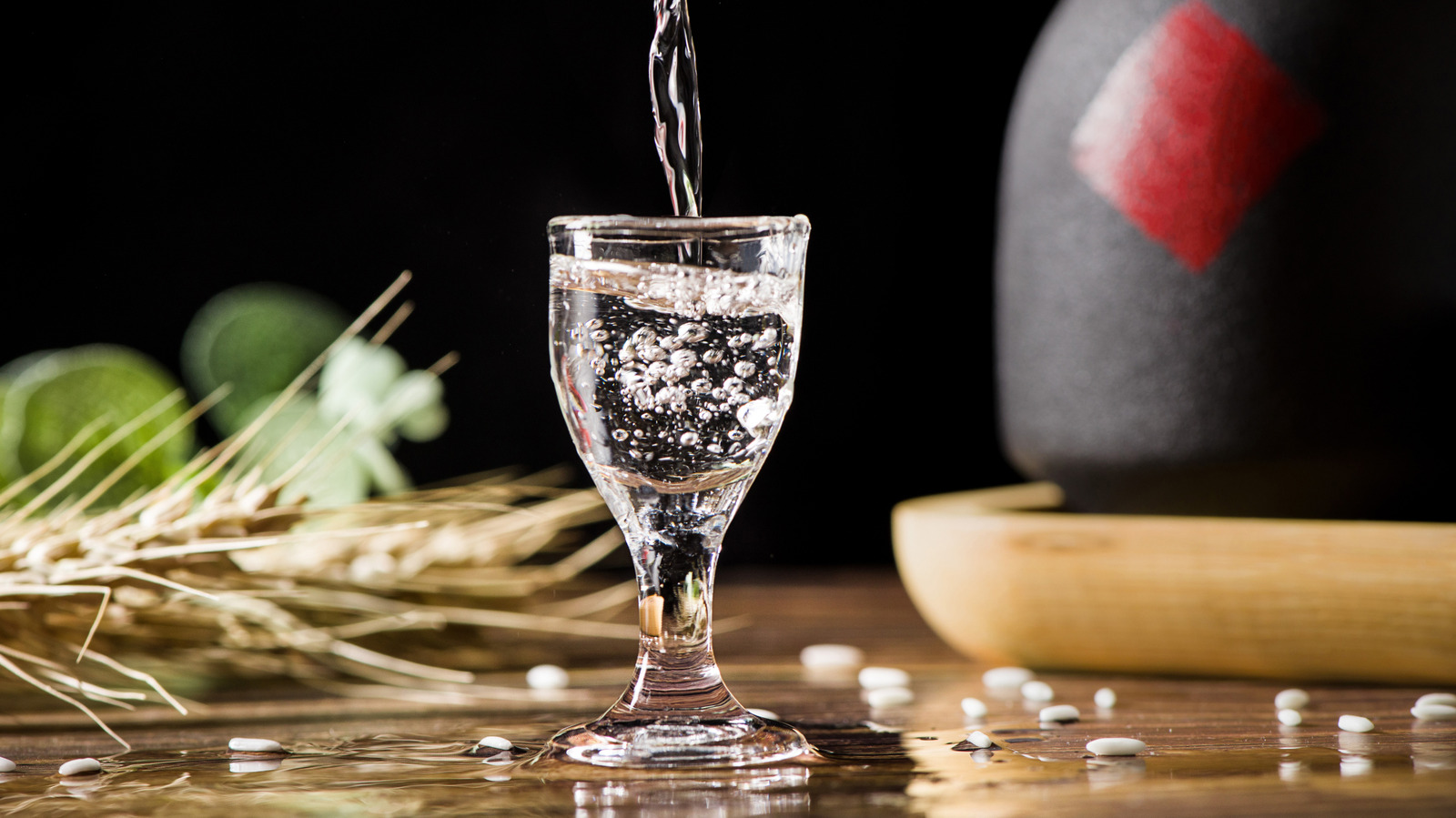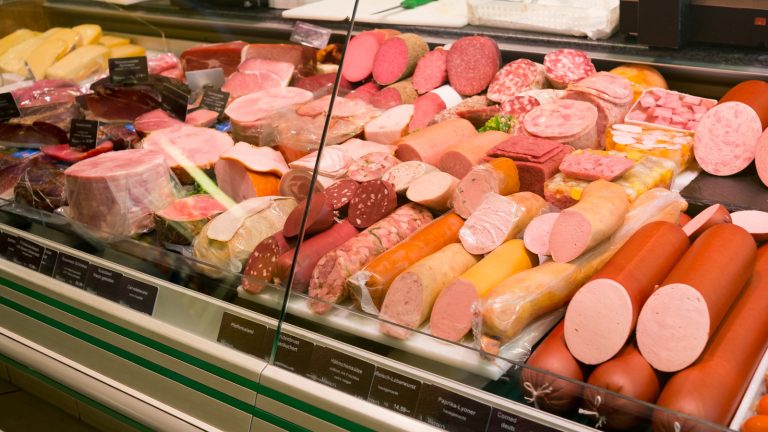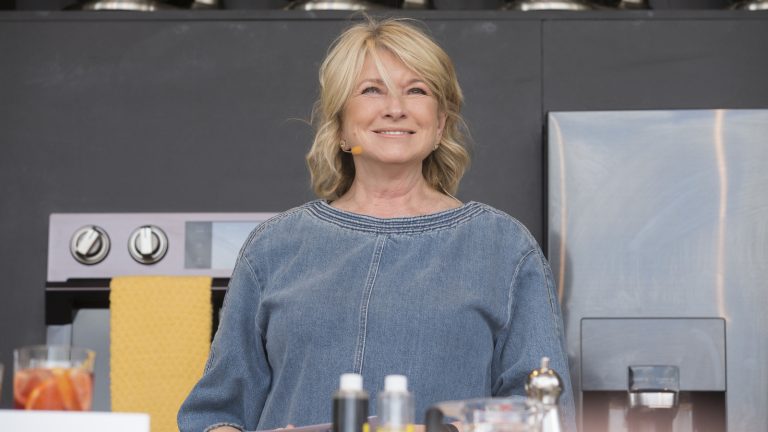Baijiu might just be the most popular spirit you’ve never tried. It was definitely mine. Poured in petite stemmed glasses, this clear spirit is generally consumed straight in a celebratory “ganbei!” (literally the Chinese term for “dry cup”). But lately, this bold (and occasionally funky) liquor is pulling up in cocktail bars around the world.
Baijiu is distilled from sorghum and fermented in earthen pits that have been in use for centuries. Ancient microbes react with the grain to give baijiu its intensely bold aroma. This punchy flavor can range from floral and fruity to full-on umami, depending on the style. While baijiu isn’t traditionally mixed, adventurous bartenders are reimagining this spirit in playful cocktails paired with tropical fruits, teas, and bitters.
Crystal Mendoza (@cocktailswcrystal) of Death & Co LA recommends embracing ingredients commonly found in Asian pantries: longan, kumquat, and goji berries. These all play beautifully with baijiu’s intensity. Kaffir lime leaves and jujubes (Chinese dates) can add aromatics and structure without overwhelming the spirit. On the flip side, nearly every mixologist I’ve spoken to agrees: high-sugar syrups, cream-based liqueurs, and dairy are a no-go with baijiu’s fermented qualities. Its intensity doesn’t mix well with heavy or overly sweet ingredients as they can mute its complexity or make the flavors feel disjointed. In short, baijiu isn’t a spirit you hide; it’s one you need to build around.
To get a feel for baijiu’s range, I spoke to mixologists leading the charge on baijiu cocktails. Start your baijiu journey with these bartender-approved favorites (and read to the end to learn how to make one at home).
Porcelain
Served at the award-winning Mother Cocktail Bar in Toronto, the Porcelain showcases the bar’s boundary-pushing outlook to mixology. Created by owner Massimo Zitti, the drink blends dry sake and Italian violet liqueur with baijiu in a triple spirit base. Inspired by Zitti’s business partner’s childhood in China, this cocktail enhances the natural aromatic qualities of baijiu with jasmine tea while adding gentle sweetness with lacto-fermented pear. A nutty undertone is imparted from the toasted wild rice and coconut. This is all tied together with the clean finish of clarified lime juice.
This cocktail also highlights the versatility of baijiu. With 4 main aroma types (strong, light, soy sauce, and rice), baijiu has an incredible range which is often misunderstood in Western cocktail culture. In the right hands, Zitti can turn baijiu into something not just approachable but masterfully designed with intricate layers of flavors. The Porcelain captures exactly why Mother Cocktail Bar continues to earn global recognition for redefining the cocktail experience.
The Emerald Fang
This cocktail was designed by mixologist Tim Dam-Richards. It takes unexpected inspiration from a childhood snack: the peanut butter, pineapple and banana sandwiches made by his grandmother. Served at MAKfam in Denver, it complements the restaurant’s bold, comforting Cantonese flavors while introducing guests to the rich complexity of baijiu. In developing the recipe, Dam-Richards mentioned the pineapple notes from the Ming River Baijiu reminded him of the pineapple jelly in his grandmother’s sandwiches. He focused on balancing the intense profile of Ming River Baijiu, a strong aroma style known for its earthy funk, subtle sweetness, and layered umami. To strike balance, he added lemon and pineapple for freshness, then anchored the drink with a salted banana base along with a touch of amaro and black sesame to evoke the nuttiness of peanut butter. The result is playful and approachable. It is a great introduction to baijiu that retains the spirit’s character but makes it easy to drink for a new palate. It’s a clever, contemporary take that shows how baijiu can thrive outside of tradition, especially in the hands of a thoughtful and adventurous bartender.
For those interested in trying a variety of baijiu, MAKfam’s beverage program includes a variety of baijiu aromas. They currently offers strong, light, and Phoenix aroma baijiu flights which are a great way to try the different aromas side-by-side.
Podium Punch
Created at Toronto’s bar industry darling, Simpl Things, the Podium Punch is a celebratory drink crafted by bar owner Evelyn Chick. As she puts it, the drink is “taking the podium.” Chick notes that “baijiu’s unique profile pairs well with flavors that either contrast or complement its complexity”. Complementary flavors include tropical fruits like pineapple and mango or citrus elements such as grapefruit and yuzu. Floral notes like jasmine and elderflower all enhance the character of baijiu.
In the Podium Punch, Chick has paired Fen Chiew Baijiu and Patrón Tequila as a split base, balancing the baijiu’s delicate earthiness with the agave’s citrus and depth. The cocktail is then infused with pineapple chai and warm spices to draw out the funkiness of the baijiu. It’s clarified with dairy-free (and vegan) coconut milk, which rounds out the characteristics of the base spirits. Utilizing this mixology technique really complements baijiu’s intensity as it softens the spirits’ edges while still maintaining the integrity of its personality.
Fen Chiew is a renowned light-aroma baijiu from China’s Shanxi province bottled at 53% ABV. Compared to other baijius, it is a great gateway baijiu that is characterized by soft, fruity notes complemented by light floral hints and a touch of lime. Similar to other baijiu, it is still vegetal and contains earthy notes on the palette.
Paper Crane
This is the flagship cocktail of Capital Spirits, an award-winning baijiu bar in Beijing known for being the birthplace of Ming River Baijiu. Per Matthias Heger, co-founder of both Capital Spirits and Ming River Baijiu, this cocktail is a refined riff on the modern classic Paper Plane. The Paper Crane swaps out whiskey for strong-aroma baijiu creating a more floral and expressive profile. It is crafted with amaro, Aperol, and fresh lemon juice, resulting in a drink that’s delicately balanced. There are also variations made with lychee or jasmine tea to add an extra layer of fragrance.
This cocktail is surprisingly easy to create at home as it requires equal parts of each ingredient and minimal bar tools. Simply add all of the components to a shaker with ice, shake and strain into a glass. Serve over fresh ice and garnish with a paper crane if you are feeling crafty.
Thai Me Down
At Peachy’s in New York City, the Thai Me Down cocktail is as cheeky as its name (and maybe twice as memorable). This vibrant concoction blends tamarind, mango, and Thai milk tea into a lush, layered drink that’s equal parts nostalgic and daring. Remember how many bartenders warned against pairing baijiu with dairy-based ingredients? Well, much like this baijiu ice cream or Luckin Coffee’s baijiu latte, Peachy’s proves that dairy and baijiu can, in fact, coexist in harmony. It just takes the right touch.
The tamarind brings a tangy, almost savory depth, while ripe mango adds tropical sweetness and body. The Thai milk tea has a strong black tea base with condensed milk which ties it all together with creamy smoothness. The drink feels like a wink to Southeast Asian street snacks. It’s not overly boozy making it a great gateway into baijiu and it pairs beautifully with spicy or umami-forward bites.
Herbal Shot
The Red Pavilion, an Asian neo noir nightclub in Brooklyn, carries multiple baijiu cocktails on their menu such as Awake (a goji berry & chrysanthemum highball), Long Living (a whisky and baijiu split-base cocktail) and the 20 Herb Special (baijiu infused with 20 traditional Chinese herbs). A great introduction to baijiu on their menu is the low-commitment Herbal Shot — a concentrated elixir rooted in traditional Chinese medicine ingredients. Built around Ming River Baijiu, this shot combines goji berries (the underrated superfood you should be eating), hawthorn, and ginseng to create an herbal, slightly medicinal flavor profile.
Orson Salicetti of The Red Pavillion explains that the intention was to showcase baijiu’s unique qualities in a way that feels both approachable and intentional. Served chilled, the Herbal Shot is designed to spark curiosity and showcase Chinese medicinal ingredients. The goji and hawthorn lend gentle tartness while the ginseng adds earthy structure that complements the spirit’s boldness.
Baijiu Gun Powder
If you like your drinks with a side of danger, the Baijiu Gun Powder at Sunny’s Chinese in Toronto is right up your alley. This isn’t your average citrusy-sweet baijiu cocktail. Technically, not even one drink — it’s three. This simple trifecta masquerades as a casual drink order but make no mistake: it’s not for the faint of heart.
The order includes: a daiquiri, a Burdock beer and a shot of Fan Chiew baijiu, all meant to be consumed in rapid-fire. Inspired by the charm of China’s late-night shaokao scene where diners double-fist beers and baijiu just to survive the spiciness of their cumin dusted skewers, this trio invites you to sip, shoot and soldier on.
Pandan Pisco Paradise
At Casa Chi in Chicago, the Pandan Pisco Paradise brings together Chinese and Filipino flavors in an inventive cross-cultural cocktail. When it comes to flavor, Filipino desserts like halo halo or pandan waffles are top tier so it is no surprise that cocktails inspired by these treats really hit the spot.
Served at Chef Richard Sandoval’s pan-Asian restaurant, this drink styles pandan’s lush vanilla notes with the floral elegance of pisco and baijiu’s umaminess. Pisco, a grape-based brandy from Peru and Chile, is known for its bright floral notes and clean finish. When paired with baijiu, it creates an intriguing tension between pisco’s airy elegance and baijiu’s earthy depth and fermented funk. At the wrong proportions, this combination could turn out disastrous but anchored with pandan, this cocktail brings a soft grassy sweetness that ties the two together. Both baijiu and pisco are underrepresented in Western cocktail programs making this unexpected pairing feel quite fresh and unique.
Forbidden Elixir
At MiMi Mei Fair in London, the Forbidden Elixir is a cocktail designed to make baijiu more approachable without losing its bold identity. Created by Assistant Bar Manager Andrea Brasotti, this cocktail was inspired by the Year of the Snake. The drink uses Ming River Baijiu in a split base with vodka to soften baijiu’s intensity and open it up to a wider audience. Brasotti layers these spirits with lychee (always a good idea!), Thai basil, and a touch of lemon which results in a fresh, herby and tropical cocktail. Brasotti notes that her idea with this cocktail was to let the baijiu speak for itself while balancing it naturally with other ingredients. It’s intentionally bright and exotic, offering contrast rather than conflict with the spirit’s natural boldness.
“I think baijiu works beautifully with tropical fruits like lychee, pineapple, or even mango, and it pairs really well with herbs” explains Brasotti. “It also responds well to citrus, which helps lift the palate and balance the richness. You want to contrast its intensity, not fight it.”
Baijiu Breeze
The Baijiu Breeze is a simple citrusy cocktail designed to showcase the bold personality of baijiu in refreshing way. This cocktail is recommended with strong-aroma baijiu like Ming River as the fruity notes from the baijiu pair well with grapefruit. Brenton Mowforth of Cheers to Happy Hour elaborates that strong aroma baijiu like Fen Chiew and Ming River has notes of pineapple so they pair really well with spices like cinnamon, bitters, lime salt, and cloves.
A relatively simple at-home baijiu cocktail can be made with: baijiu, fresh pineapple juice, grapefruit juice, simple syrup (optional as pineapple juice is sweet enough), and a dash of Angostura bitters. Pineapple adds vibrant sweetness, while grapefruit cuts through with acid. The syrup rounds it all out with gentle richness and the bitters lend a subtle spice. This can all be prepared in one tall glass with ice, stirred. With only five ingredients and no complicated technique, it’s a great way to add baijiu to your home bar cart. If you’re feeling fancy, try garnishing with tanghulu.





